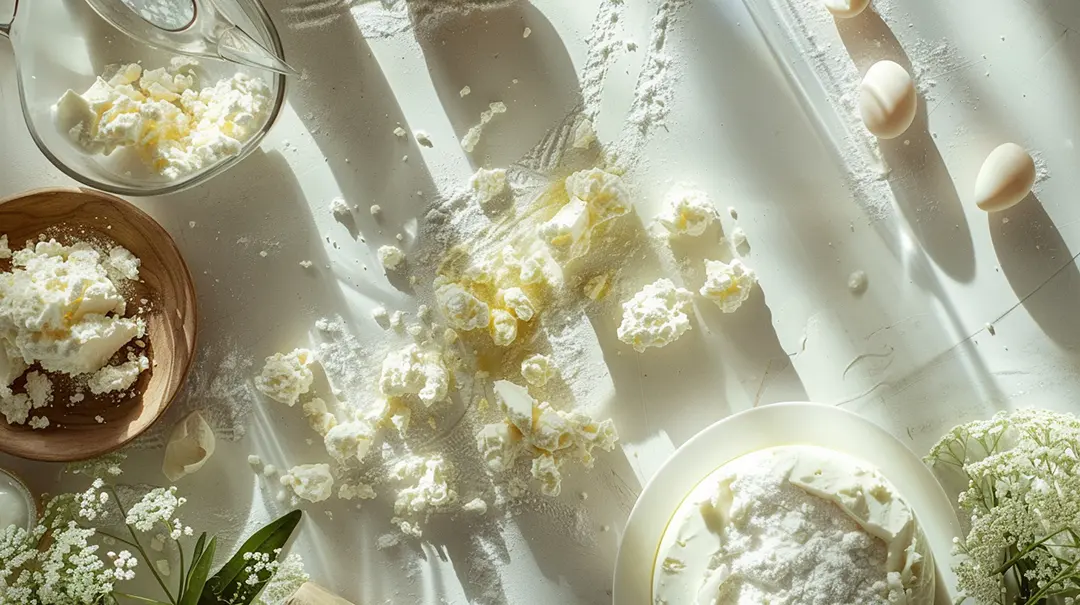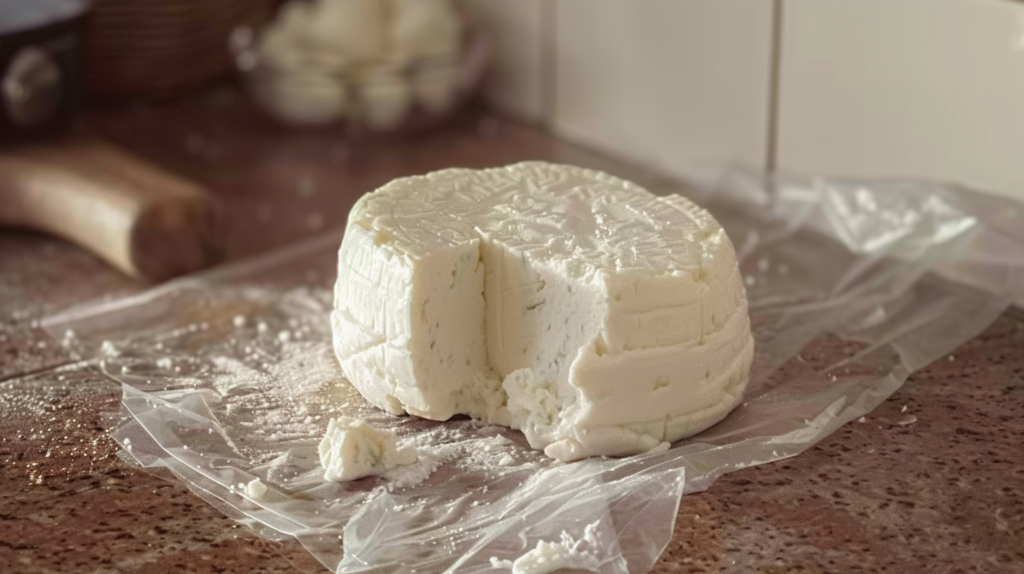
Cypriot Anari cheese, a traditional whey cheese with a ricotta-like taste, holds a significant place in Cyprus' culinary heritage. Originating from Halloumi cheese production, Anari has evolved through generations with deep cultural roots, showcased in folklore and traditional stories. As a symbol of heritage and continuity, Anari cheese is more than just an ingredient; it embodies Cypriot identity and the intertwining of food with storytelling.
Cypriot Anari cheese, a traditional whey cheese, plays a crucial role in Cypriot cuisine and cultural heritage. Known for its soft texture and mild flavour similar to ricotta, Anari is deeply embedded in the island’s culinary practices, often enjoyed with honey or carob syrup.
Anari cheese has deep roots in the history and tradition of Cyprus. Its origins can be traced back centuries, reflecting the island’s rich agricultural heritage and dairy culture. Initially, Anari emerged as a by-product of Halloumi cheese production, utilising the whey left over from the process. This method not only maximised resource efficiency but also introduced a new culinary staple to Cypriot households.
Throughout generations, Anari cheese has evolved while maintaining its core traditional methods. Older generations passed down recipes and techniques, ensuring that each family preserved their unique variations. In many rural regions, artisanal cheese-making practices are still prevalent, with families engaging in time-honoured methods to produce this beloved cheese.
Anari’s cultural importance is highlighted in Cypriot folklore and traditional stories. One notable example is its mention in the fairy tale Spanos and the Forty Dragons. In this story, Anari cheese symbolises sustenance and resilience, reflecting its vital role in everyday life. Such tales not only entertain but also serve as a means to preserve cultural identity through food.
The role of food in storytelling extends beyond mere sustenance; it acts as a bridge connecting past and present generations. Anari cheese embodies this connection by being featured prominently in various Cypriot customs and celebrations. Through shared meals and communal gatherings, the tradition of enjoying Anari is perpetuated, enriching contemporary cultural practices with historical significance.
In essence, Anari cheese is more than just a culinary ingredient; it is a symbol of heritage and continuity. The intertwining of food with folklore and tradition underscores its role in cultural preservation, making it an integral part of Cypriot identity.
Anari cheese is made using two main ingredients: whey and milk from goats or sheep. This combination creates a special type of cheese called whey cheese, which is not only versatile but also holds great cultural importance.
This careful process not only showcases the artisanal nature of Anari production but also reflects its deep connection to Cypriot dairy culture. Each step, guided by tradition and precision, ensures that this ancient cheese continues to be loved by future generations.

Cypriot cuisine showcases Anari cheese in a variety of everyday meals and traditional dishes.
Bourekia is a popular pastry made with fresh Anari, sweetened with sugar and cinnamon, and wrapped in thin dough before being fried or baked.
Another beloved dish is Flaounes, an Easter bread filled with a mixture of Anari, mint, and raisins, often enjoyed during festive celebrations.
For breakfast, fresh Anari cheese plays a versatile role. It is commonly served alongside honey or carob syrup, creating a delightful balance of creamy and sweet flavours. This simple pairing highlights the cheese’s mild taste and soft texture, making it a favourite morning treat.
Beyond these specific dishes, Anari also finds its way into various savoury recipes. It can be crumbled over salads for added richness or used as a filling in stuffed vegetables like peppers and courgettes. The versatility of Anari allows it to complement both sweet and savoury elements in Cypriot cuisine seamlessly.
The adaptability of Anari cheese makes it integral to many culinary creations, reflecting its importance in daily life and cultural traditions on the island.
Anari cheese is celebrated not only for its role in traditional Cypriot dishes but also as a versatile ingredient suitable for a variety of sweet and savoury recipes. Its mild flavour and soft texture make it an excellent base for culinary experimentation.
Modern chefs in Cyprus and beyond are embracing Anari cheese’s flexibility by integrating it into contemporary cuisine. From gourmet pizzas to innovative appetisers, its adaptability shines through. For instance:
The potential uses of Anari cheese extend far beyond its traditional applications, making it an exciting component in both classic and modern kitchens.
While similar in appearance and texture, anari and ricotta have distinct characteristics. Both are fresh whey cheeses with soft textures and mild flavors, produced using comparable methods. However, anari is specifically made from goat or sheep’s milk whey, while ricotta can be made from cow, sheep, goat, or water buffalo milk whey.
The two cheeses also differ in their culinary applications:
Both cheeses can be used in sweet and savory dishes, but their specific uses vary based on regional traditions
Anari cheese holds a special place in Cypriot celebrations and customs, embodying more than just a culinary delight. During festivals like Easter, Anari is integral to traditional dishes such as Flaounes—a type of cheese-filled pastry that symbolises the festive spirit. Seasonal celebrations often feature Anari prominently, underscoring its role in communal feasting and joyful gatherings.
The importance of local production methods cannot be overstated, as these practices foster community bonding and preserve cultural heritage. In many rural villages, families engage in artisanal cheese-making, passing down recipes and techniques through generations. This tradition not only ensures the authenticity of Anari but also reinforces social ties within communities.
Sharing recipes among families acts as a conduit for cultural preservation. Elders often teach younger generations the nuances of making Anari, from selecting the best whey to fine-tuning the texture and flavour. Such practices are pivotal in maintaining the island’s rich dairy culture, ensuring that the essence of Cypriot life continues to thrive.
The communal aspect of Anari production and consumption highlights its significance beyond merely being a food item—it stands as a testament to Cyprus’s enduring cultural practices and community spirit.
Preserving the culinary heritage of Anari cheese ensures that future generations can appreciate and enjoy this traditional Cypriot delicacy.
By combining respect for time-honoured methods with a willingness to adapt, the future of Anari cheese looks promising, securing its place in Cypriot culture for years to come.

At Med.kitchen, our passion lies in crafting exceptional culinary experiences through our online platform. We specialise in sharing a wealth of knowledge via articles, recipes, courses, and online mentoring, aiming to inspire both novice and seasoned chefs alike. Our focus has shifted from private dining to being an online source of gastronomic inspiration, allowing you to explore and refine your culinary skills from the comfort of your home..